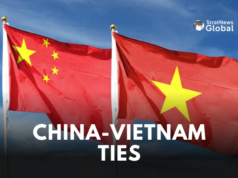China’s debt-laden property company the Shimao Group, is fighting a liquidation petition filed by the China Construction Bank (CCB), the country’s second largest. This follows Shimao’s inability to pay CCB the $202 million it had borrowed. It’s rare for a state-owned lender to take such action against a developer but with the property sector in crisis since 2021, CCB evidently felt the need to get its money back. It has also opposed any move by Shimao to restructure amid growing concerns over potential losses.
Shimao’s total offshore debt is of course much larger at $11.8 billion and it is hopeful of selling off the Sheraton & Four Points Hotel near Hong Kong International Airport for a tidy $828 million. With over 1,200 rooms, the Four Points Hotel which opened four years ago, is the city’s second largest and it seems many local investors, property developers and foreign funds have expressed interest.
Oscar Chan, head of JLL Capital Markets in Hong Kong, said the hotel’s occupancy rates had improved after the lifting of Covid restrictions last year and the sale could fetch a good return now.
Even as Shimao struggles to get its finances in order and stave off liquidation, China’s other and bigger property developers are in deep trouble. Country Garden faced a winding-up petition in February due to its inability to repay debts exceeding $200 million. However, the developer, headquartered in Guangdong, dismissed the likelihood of liquidation in a statement issued last month.
In late January, a court in Hong Kong ordered the Evergrande Group, known for having the most debt worldwide, to go through liquidation. Evergrande is a massive company in China‘s property market that has run into big financial problems because of its huge debt. This has caused a lot of worries about its effects on the world economy.
Since August 2020, when a national initiative was launched to control debt within the industry, Chinese property developers have struggled with cash flow issues. Following this, numerous developers have been unable to meet their debt obligations. To boost cash flow in the industry and strengthen confidence, Chinese officials have introduced incremental steps to provide financial support to property developers
In January, a new policy called the “project whitelist” was introduced, enabling local governments to suggest real estate projects to banks for financial assistance if they meet certain criteria. However, this push to increase aid for debt-laden developers is affecting the earnings of China’s commercial banks negatively. The Bank of Communications, a major state-owned lender, recently reported its weakest annual profit growth since 2004 or earlier, along with a decline in its net interest margin.
Similarly, CCB along with the Industrial Bank of China, Bank of China, and Agricultural Bank of China, experienced a reduction in their net interest margins.
With Inputs from Reuters
Research Associate at StratNewsGlobal, A keen observer of #China and Foreign Affairs. Writer, Weibo Trends, Analyst.
Twitter: @resham_sng





